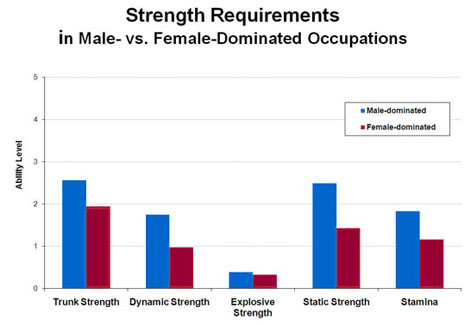Skills Sets in Nontraditional Careers

Job requirements have little or nothing to do with gender.
In fact, skill requirements in male- and female-dominated occupations are often more similar than you might think.
Different Genders, Same Skills
People sometimes avoid nontraditional careers because of who works in them and not what the job would actually be like. But did you know that some male-dominated careers use the same skills as some female-dominated ones?
Skill Profiles
Skill profiles are graphs of which skills are most or least required by occupations. Learn how similar occupations are to each other by comparing their skill profiles. You may find some surprises, such as:
- The skill profile (409KB, .pdf) for registered nurses (92% female) is similar to those for civil engineers (11% female).
- The skill profile (482KB, .pdf) for construction managers (6% female) is similar to those for meeting and convention planners (80% female).
- The skill profile (500KB, .pdf) for firefighters (4% female) is similar to those for personal and home care aides (87% female).
Don't Let Strength Requirements Deter You
Some women think they won't qualify for nontraditional careers due to physical requirements. But such requirements are often overstated.
It's true that some male-dominated occupations require more strength than female-dominated occupations (see the chart below). But the differences aren't as large as you might think. So don't limit your options because of incorrect facts.

Bona Fide Occupational Qualifications
A company is legally able to specify that a certain job must be filled by a man or woman. In these cases, sex is a bona fide occupational qualification (BFOQ). There are no standard BFOQ occupations. Employers have to make the case that a job qualifies for this status.
But BFOQs are not common. For example, sex isn't a BFOQ for jobs with manual tasks or lifting (which are often filled by men). Nor are jobs that require nurturing or caretaking (which are often filled by women). Applicant must be judged on their individual abilities. They cannot be judged on what is typical for their group.


